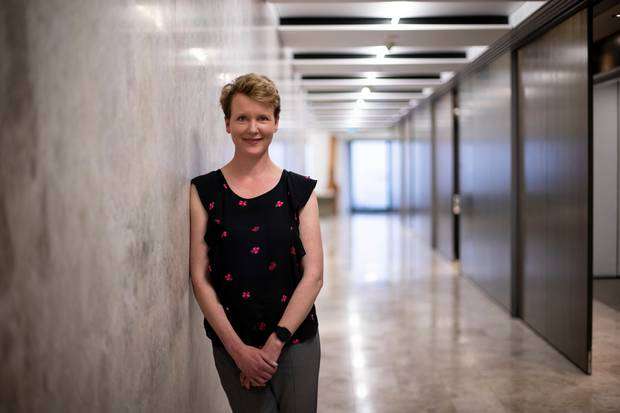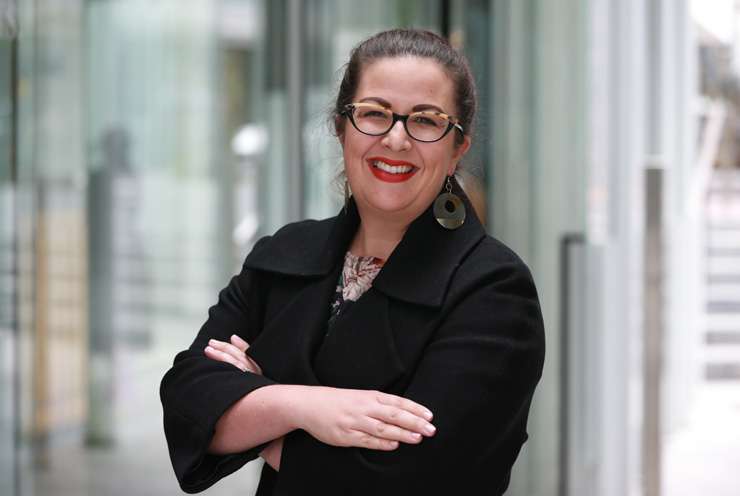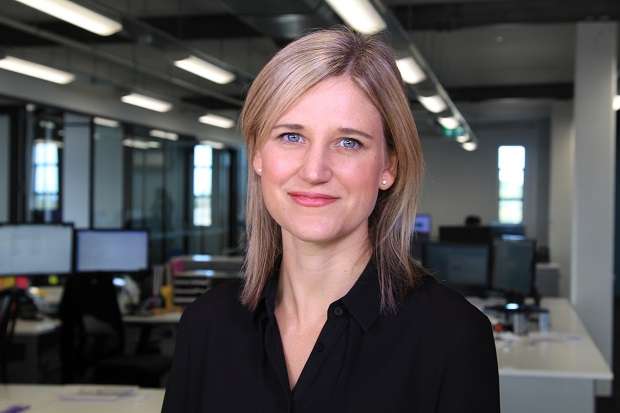With the Government enforcing an alert level three lockdown in Auckland from noon on Wednesday August 12, and the rest of New Zealand going into alert level two, after cases of community transmission were found in south Auckland, fears are running high that the country could be hit with a second wave of Covid-19.
OneRoof talked to financial and housing market experts at the start of the week, before the Prime Minister’s announcement on Tuesday night, about the impact of a new outbreak. All were clear that a return to tight restrictions would mean even higher unemployment.
What would happen in terms of flow-on to the housing market is less clear.
Sharon Zollner, ANZ’s chief economist, says reverting back to Level 2 or 3 is the nightmare scenario and would mean a W-shaped recovery, where economic recoveries are followed by relapses.
Start your property search
“Forget the U or V-shaped recoveries, you’d be looking at a W there and that is indeed what Melbourne’s looking at.”
After the lockdown our Government took the hit on the chin with wage subsidies helping businesses through and the vigour of the bounceback shows that worked, but the damage is still sitting there on the Government’s balance sheet, she says.
The Government won’t be able to protect everybody 100 per cent and many firms in tourism have found their business model has been destroyed.

ANZ’s chief economist Sharon Zollner: “Forget the U or V-shaped recoveries.” Photo / Supplied
Retail and hospitality would also enter a second lockdown in a much weaker position – and the closed border hits the people-heavy industries the hardest with hospitality, tourism and retail all punching above their weight in terms of employment.
But incomes have been supported by wage subsidies and in many cases people’s outgoings have been deferred by the mortgage deferment scheme, which Zollner thinks is likely to be extended.
Ground zero
“As far as the housing market goes, well, you haven’t seen any implications really yet because no one’s in a situation where they have had to sell their house,” she says.
“In the long run, of course, if people’s situations have changed, they have to change their plans and there will be some people unfortunately who don’t have the income to support the debt they’ve taken on any longer and do have to sell.”
The housing market is splitting into the tourist trail and the rest, Zollner says.
“Queenstown is ground zero; Warkworth is booming. Some regions the tourists never set foot anyway are just loving the low interest rates and the removal of the LVR restrictions, and some banks, including ANZ, have lowered the interest rate they use to test affordability which, all else equal, will increase the amount you can borrow,” she says.
“Countering that, banks are more aware of risks around income and so are likely asking more questions on that front and about your spending, so there’s caution out there.”
Mentally prepared
A Melbourne-style U-turn would hit business and consumer confidence hard and would be dispiriting, she says.
But New Zealand is lucky, too. People have not been in a constant state of lockdown and are having a breather and rebuilding mental wellbeing and resilience which should increase the chance of a new lockdown working.
“Whereas, what you see globally is that people are over it. They’re just sick to death of it and it’s showing up in different ways. Young people are more likely to have an illegal party, other people are more likely to develop mental health problems perhaps.
“It’s really, really hard and we are just skipping all of that. Depending on what you value I think you could make a case New Zealand has the best standard of living in the world at the moment.”

Financial adviser Hannah McQueen says Covid-19 has changed many people’s attitude to money. Photo / Supplied
Lessons from Melbourne, and around the world, have shown up weaknesses in the system not so apparent here.
Not only was Melbourne’s housing market looking less rosy than New Zealand’s before the crisis and their household debt much higher, but their labour market has been much weaker than New Zealand’s with higher unemployment and much more casualisation of the labour force.
That has meant people without sick leave still going to work when they were unwell.
“That appears to be quite a large part of why this happened and why the softer lockdown didn’t work, because people basically had to go to work if they wanted to be paid. The part-time share of employment has just skyrocketed over there in the last 10 years and it hasn’t here,” Zollner says.
“America’s had the same problem. A lot of people have a pretty tenuous existence in the labour market and don’t have sick leave, therefore, go to work when sick.”
Market on thin ice
Here, forecasting what will happen in the housing market is tough. While the drop in interest rates and easing of lending conditions have gone a long way to offsetting uncertainty the rise in unemployment hasn’t yet hit in a big way.
“In the end, there is a link between the labour market and the housing market. We’re not seeing it yet because the labour market’s on life support. But the housing market, it’s too early to say it’s dodged a bullet and if a second bullet came along we really would be on pretty thin ice I would think.”
Nick Tuffley, ASB’s chief economist, says the country had a good taste of what short-term disruption looks like after the previous lockdown and any return to restrictions would again disrupt the viewing, offering, settling and moving chain.
The broader issue is the added economic damage that could come; companies under further profit pressure would look at their ability to hire or retain existing staff.
“So we would likely have another hit to our overall incomes and a weaker labour market again. [We are] more likely to get more job losses and business failures off the back of a second round of quite restrictive conditions and all that will flow through.
“If the health of the economy is weaker then flow-on impacts to things like household decisions around spending and buying houses will be impacted as well.”
Job security is the big issue, although there is already a lot in place to limit outcomes such as mortgagee sales.

Melbourne’s return to lockdown has exposed a lot of weaknesses already in its housing market. Photo / Getty Images
“One thing to bear in mind is that during the Global Financial Crisis, although things were quite different, the vast majority of mortgagee sales were actually from people who had borrowed money from finance companies,” Tuffley says.
“We do need to bear in mind the reality is there are some people who may struggle over an extended period to get work, but there will also be a lot of work done to really help people out.
“That’s one of the reasons why we don’t see the housing market weakening too dramatically, under the assumption we’re not going to be headed into restrictive conditions that could derail the economy a second time around.
“I think the thing for New Zealand is we are collectively more vulnerable to a lockdown compared to the first time around because we’ve already taken quite a hit, and the Government’s already taking on a lot of debt as it is to try to help plug the gaps in the economy in the near term.”
Having said that, we have learned a lot, he says. Where the first lockdown focused on the essential versus the non-essential, a second might focus differently.
“Would we need to do things like halt construction when people can more readily keep distance, particularly on infrastructure projects and things like forestry?”
Physical distancing
The real estate industry has also learned lessons from the first lockdown but REINZ chief executive Bindi Norwell says given the Government warnings, it’s prudent for property professionals to start preparing.
“There have been a lot of key learnings from being in lockdown earlier in the year which we can draw from, including business continuity planning, leveraging digital tools, financial planning and revisiting the rules around what real estate activity can be completed at Level 2 and Level 3 and preparing accordingly.

REINZ chief executive Bindi Norwell says there are key learning for the industry from the last lockdown. Photo / Supplied
“One thing that will be different this time around will be the use of masks. The Director General of Health has suggested that at Level 2 masks will be optional but encouraged where people are unable to practice appropriate physical distancing requirement – an open home or packed auction room could be a good example of this.
“At Level 3 masks are likely to be compulsory, so agencies should be considering how they will be able to supply agents with masks should we start to move back up through the alert level system.”
Bryan Thomson, Harcourts managing director, says agencies will assess every change in level and a move back may have the same or different rules.
“They may be regionalised or they may have different criteria. The one thing I’m really confident about is the massive of work our team put in place, and indeed REINZ assisting us, means I think our industry is as prepared as anyone to be able to transact real estate for our clients no matter what the restrictions are.”
Thomson it’s irresponsible to speculate on a hypothetical situation – but says the reasons people buy and sell their homes don’t change.
“People don’t buy residential real estate on a whim, they buy it for very sound reasons and those reasons are in place no matter what is happening in the economic picture,” he says.
“If you look at the way property market has continued post-lockdown, and if anything accelerated, it shows that no matter what’s happening in the world people’s need to have a home over their head or indeed to add to their investment doesn’t change.”
Change in attitude
Financial adviser Hannah McQueen says about 43 per cent of homeowners are mortgage-free which insulates a large section of the property market.
“In general, I think people would have a better idea of what we’re in for the second time around, which helps them to keep thinking strategically rather than resulting in paralysis.”
She says she has seen is an upswing in clients seeking to make financial progress.
“What I’ve noticed most is there has been a huge increase in engagement: those who could have made financial progress in the past but have opted out of doing so have become a lot more motivated to grow wealth since Covid.
“I think Covid has helped shake the notion it will somehow be okay in the end (financially) even if you do little to ensure that outcome.”
Along with tighter spending habits, big inroads are being made in short periods of time: “They’ve been saving more, paying mortgages down faster and in many cases leveraging off those gains to invest in property,” she says.
"Covid has highlighted that life will throw you bigger curve balls than you can imagine, completely outside of your control, so making financial hay while the economic sun shines is necessary for everyone, especially those accustomed to living a comfortable lifestyle.”











